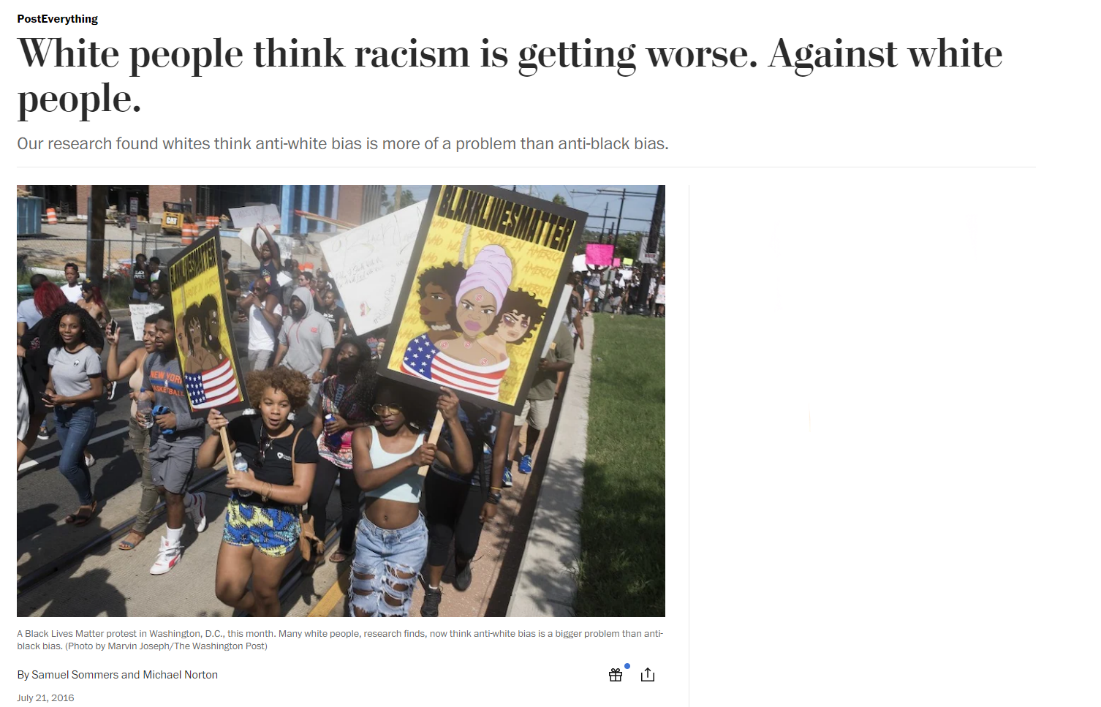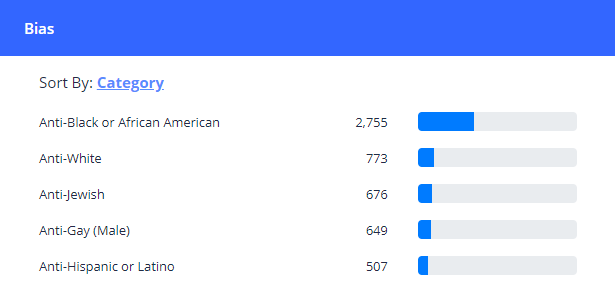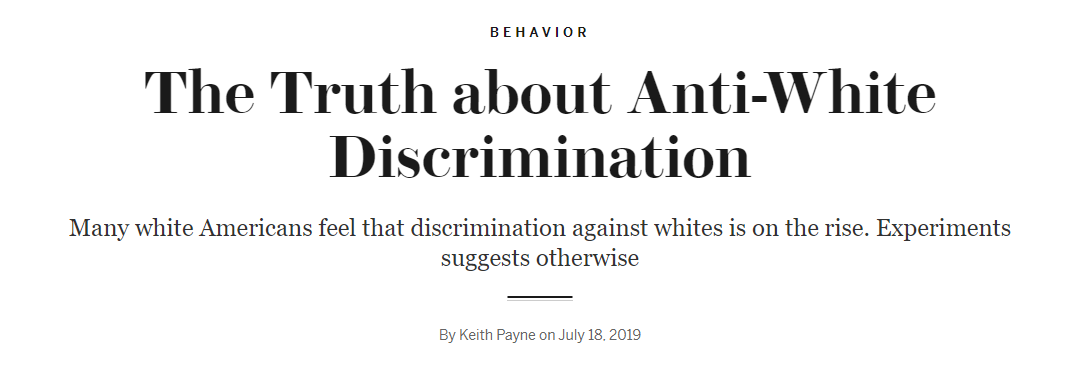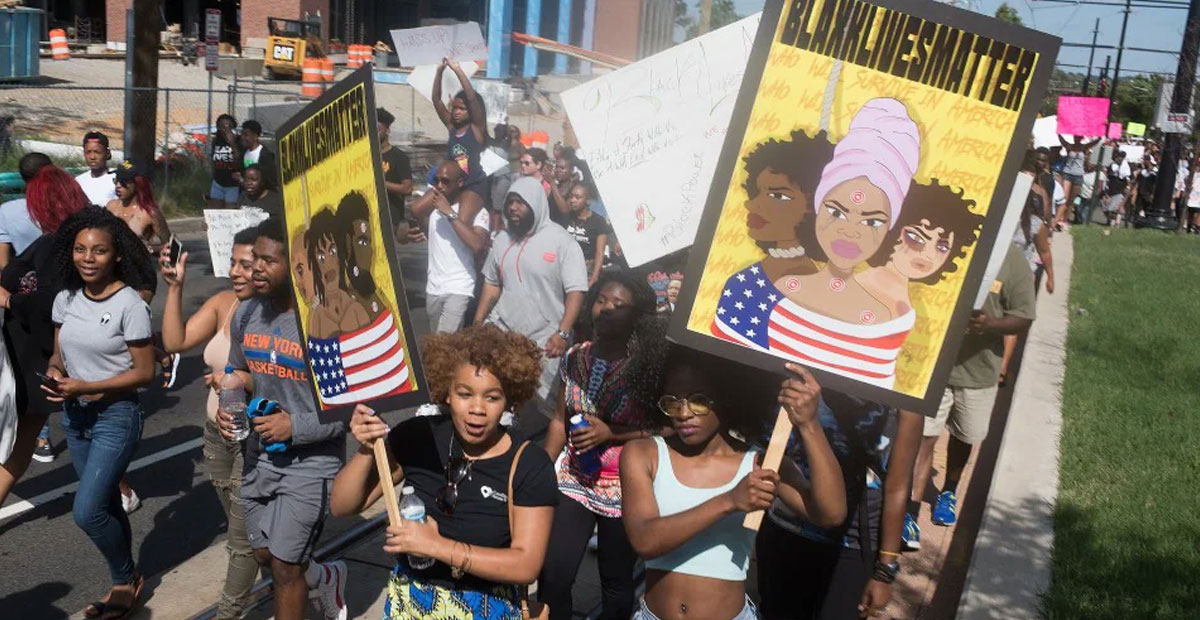
What I read: This piece from The Root about the new FBI report showing that hate crimes are at a 12-year high and that Blacks are, by far, the most targeted group.
What I learned: A fear, even unfounded, can be dangerous.

Last year, more than 10,500 people in the U.S. reported being targeted by a hate crime. That’s a significant increase over 2019’s numbers, and the highest number since 2008. Each year the FBI compiles the data and publishes an annual Hate Crime Statistics Report. Keep in mind that police departments submit their information voluntarily and nearly 3,500 departments didn’t participate in 2020. That means the FBI figures almost certainly are an undercount.
Blacks are, by far, the most frequent targets of hate crimes, despite making up only 13.4% of the US population. Attacks against African Americans rose from 1,930 in 2019 to 2,755. Jews took the bronze in the Most Likely to be Attacked Because of Identity competition, so, as a Black Jew, I face odds that are unfavorable to say the least.

Law enforcement hasn’t identified all of the offenders, but well over half were white, compared to just 20 percent who were Black.
I realize that I’m dumping a lot of statistics here, but there is method to my mathematical madness: I intend to put paid to the idea that anti-white bias is a significant problem in this country. Before you pooh-pooh my interest in reverse racism, insisting that only a small number of white people really believe they are victims of racial discrimination, let me assure you that the evidence says otherwise.
Researchers have been polling people on this question for years. They have found that at least half of white Americans think there is more discrimination against whites than against Blacks. Michael Norton of Harvard and Samuel Sommers of Tufts have conducted multiple studies of the issue. Their 2011 report, published in the journal of the Association of Psychological Science, was titled, “Whites See Racism as a Zero-Sum Game That They Are Now Losing.”

The scientists have since repeated that study and found much the same thing: whites, especially Republicans, increasingly believe that they are frequent targets of race-based discrimination and hostility. I could devote the next two pages to listing studies and polls that prove the belief in reverse racism is healthy and much more widespread than some would like to believe.
I could also spend days listing statistics proving that racism against Blacks is both systemic and enduring, but both personal experience and research have shown that citing facts is not convincing to those who downplay anti-Black sentiment in the U.S. For example, the New York Times published a reader’s forum in 2018, including many of the responses to a report showing Black boys are severely disadvantaged compared to their white counterparts.
A reader named Michael Sundel asked: “Why is racism the only explanation for this phenomenon? Perhaps something happens to black boys while they are growing up that makes them less capable of succeeding in the U.S. economy. For instance, maybe cultural forces cause black boys — but not black girls — to focus on activities that leave them with poorer time management skills than those that boys of other races are developing. So, why do the authors take the easy way out and blame amorphous racism?”

https://newrepublic.com/article/158586/ultimate-white-fragility
Historian Ibram X. Kendi replied: “Either there is something wrong with our policies, or there is something wrong with black boys (or black people). Either the United States is riddled with racist policies or inferior black boys. We have all sorts of evidence of racist policies. Where is the evidence that black boys as a group have “poorer time management skills” than white boys as a group? Personal observations of individual behavior is not evidence of group behavior. Racist ideas of black inferiority is the easy way out.”
The sad truth is that statistics don’t seem to sway people like Sundel. Citing facts doesn’t seem to budge the needle at all when it comes to racist beliefs. Even if you believe, as Sundel does, that inequalities in income, wealth, housing, and criminal justice can be explained by cultural differences instead of racism, it should be impossible to ignore decades of research that documents and quantifies racial discrimination. You know who benefits the most from affirmative action programs? White women.

https://www.scientificamerican.com/article/the-truth-about-anti-white-discrimination/
The above article from Scientific American listed direct evidence of anti-Black discrimination: Black applicants whose resumes were identical to white applicants but got half as many calls from recruiters. Housing inquiries associated with traditionally Black names (like Ebony Washington) were 26% less likely to be told an apartment was available than the inquiries from Jane Bauer or Dustin Tanner.
“Professors are more likely to ignore emails from students of color,” the article declared. “Airbnb hosts are more likely to tell black renters that the listing has already been taken.” A group of scientists conducted a meta-analysis of two dozen studies and found absolutely no evidence of anti-white bias. And lest you think it’s gotten better in recent years, the measured rate of discrimination against people of color hasn’t budged since the 1980s.
Why do whites believe they are discriminated against when all credible evidence contradicts that belief? To answer that, we have to return to the original 2011 study that documented widespread belief among whites that they were more likely to suffer because of their race than Black people. The researchers behind that study documented a powerful conviction that civil rights is a zero-sum game.
In other words, a large number of white people think there is a finite amount of power and privilege available and, as people of color are given more, they have less. If we remove bias from hiring protocols so that Blacks are less likely to be discounted, that means they will have a better chance at getting jobs. And that means, according to some white people, white people’s chances will decline.
Yet, the FBI tells us that African Americans are much, much more likely to be attacked because of their race than whites are. Blacks are more likely to suffer from discrimination than whites. Researchers have been searching for evidence of anti-white bias for decades and have still found no evidence.
They have found evidence, however, that white people often feel anxious and afraid when they learn that the American population is diversifying and soon, whites will no longer represent more than half the population. Study of this issue is increasing, by the way.
One 2018 report warned that “Whites are increasingly likely to embrace an assimilative, rather than multicultural, ideology regarding racial/ethnic diversity in the United States and promote the social, political, and economic interests of Whites—the racial ingroup. In other words, White identity politics are likely to re-emerge in more overt and explicit forms as the racial diversity of the nation increases. Indeed, they probably already have.”
Those scholars suggested that more research is needed regarding the causes of this phenomenon, and that “some effort to assuage the identity threat and broader concerns of White (Christian) Americans is going to be necessary.” How we assuage often-irrational fears without simultaneously justifying them is a complicated task.
Keep in mind that many police officers believe their job is extremely dangerous, and that belief might make them more likely to use deadly force in the course of their work. Yet, law enforcement is not even in the top ten of most dangerous jobs. Landscapers are more likely to be injured or killed on the job than a cop. That doesn’t mean police don’t take risks, but it does mean their fear may be outsized in relation to the risks, and that ultimately means Black Americans are less safe.
These fears that so many white Americans harbor—that they are likely to be targeted because of their race—are relatively unfounded. Hate crimes against white people are rare. Keep your eyes on the FBI data, my friends. Let the actual numbers tell the story, not your apprehension about a rapidly diversifying population.

https://www.huffpost.com/entry/reverse-racism-isnt-a-thing_n_55d60a91e4b07addcb45da97

